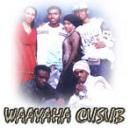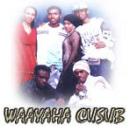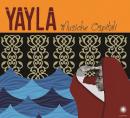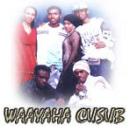Dadka yaa xasuuqay
dalkii yaa haleeyay
dumarkii dhibtooday
aafo yaa ku daaray
dibna yaa u dooxay
diintii ilaahiyo
nimaan damiir lahaynbaa
xeerkii daboolnaa
dariiqii ka boodoo
durduraaya godobtiyo
iska daaqa dulmigiyo
danbigiisu intuu yahay
dalacaad ku gaaree
diintii ilaahiyo
nimaan damiir lahaynbaa
xeerkii daboolnaa
dariiqii kaboodoo
dalacaad kugaaree
Dalka xiray dalka xiray
duqowdiyo cuqaashana
dabinkiisa kama dhigan
daqarkiisu intuu dilay
soo maqiran dacwadeeda
markuu rabo inuu duulo
ama dooxo bulshadeena
duqowdiyo cuqaashiyo
inta keena daarihiisa
oraah dadban uma saro
dacdarada qabiilkiyo
inuu yahay daacigooda
u istaagay danahooda
uga yimid dibadaha
dacwadiisa kuma jaro
duqoduna aragtiday
rutii maleh dareen adag
darmaanadii nolashoodu
daryeelkoodu uga darnaa
soo madhicin goobta dirir
isagana dahab iyo
uga fiican duunyadaba
ma dareemo waxii dhacay
kuwuu dhalay dibadaha
sooma dagin qaarad kale
Dadka yaa xasuuqay
dalkii yaa haleeyay
dumarkii dhibtooday
aafo yaa ku daaray ?
dibna yaa u dooxay ?
diintii ilaahiyo
nimaan damiir lahaynbaa
xeerkii daboolnaa
dariiqii ka boodoo
durduraaya godobtiyo
iska daaqa dulmigiyo
danbigiisu intuu yahay
dalacaad ku gaaree
diintii ilaahiyo
nimaan damiir lahaynbaa
xeerkii daboolnaa
dariiqii kaboodoo
dalacaad kugaaree
dalkii yaa haleeyay
dumarkii dhibtooday
aafo yaa ku daaray
dibna yaa u dooxay
diintii ilaahiyo
nimaan damiir lahaynbaa
xeerkii daboolnaa
dariiqii ka boodoo
durduraaya godobtiyo
iska daaqa dulmigiyo
danbigiisu intuu yahay
dalacaad ku gaaree
diintii ilaahiyo
nimaan damiir lahaynbaa
xeerkii daboolnaa
dariiqii kaboodoo
dalacaad kugaaree
Dalka xiray dalka xiray
duqowdiyo cuqaashana
dabinkiisa kama dhigan
daqarkiisu intuu dilay
soo maqiran dacwadeeda
markuu rabo inuu duulo
ama dooxo bulshadeena
duqowdiyo cuqaashiyo
inta keena daarihiisa
oraah dadban uma saro
dacdarada qabiilkiyo
inuu yahay daacigooda
u istaagay danahooda
uga yimid dibadaha
dacwadiisa kuma jaro
duqoduna aragtiday
rutii maleh dareen adag
darmaanadii nolashoodu
daryeelkoodu uga darnaa
soo madhicin goobta dirir
isagana dahab iyo
uga fiican duunyadaba
ma dareemo waxii dhacay
kuwuu dhalay dibadaha
sooma dagin qaarad kale
Dadka yaa xasuuqay
dalkii yaa haleeyay
dumarkii dhibtooday
aafo yaa ku daaray ?
dibna yaa u dooxay ?
diintii ilaahiyo
nimaan damiir lahaynbaa
xeerkii daboolnaa
dariiqii ka boodoo
durduraaya godobtiyo
iska daaqa dulmigiyo
danbigiisu intuu yahay
dalacaad ku gaaree
diintii ilaahiyo
nimaan damiir lahaynbaa
xeerkii daboolnaa
dariiqii kaboodoo
dalacaad kugaaree
envoyé par Riccardo Venturi - 22/8/2007 - 14:58
×
![]()





NAIROBI: Upon entering a tiny recording studio in a grimy Nairobi building, Felis removes her face veil, slides headphones onto her ears and starts singing in a high voice: “Girls are raped. Warlords are to blame”.
Over a soundtrack of world music and rap, Felis Abdi and the group Waayaha Cusub, made up of some 20 young Somali refugees, crudely slam the war that has torn up their country for 16 years, almost all their lives.
“All the people have been killed. Let us repair the country. There is no school, there is no peace,” sings Waayaha Cusub, which means “New Era” in Somali.
“People listen to you more when you sing than when you speak,” says Abdiwali Ibrahim Garyare, one of the group’s singers, who has lived in Kenya for 17 years.
“We can make a difference because the young generation listens to us,” adds 17-year-old Felis, who has a gap between her teeth.
The group’s choreographer, Djamila Djama, says that five Somali boys, who now live in Nairobi, stopped carrying guns after listening to the anti-war rhetoric of their songs. The tunes have blasted out of radios in Kenya and Somalia — in Somali, Swahili and English — since the group was created in 2004.
Their videos, featuring militias armed with rocket launchers, civilian massacres and burning buildings, are broadcast across the Internet. They are often filmed in Nairobi’s Eastleigh neighbourhood, nicknamed “little Mogadishu” due to its large Somali population.
Waayaha Cusub spares no player in Somalia’s war from its criticism: warlords who have imposed their own laws for years; Islamists who controlled south and central Somalia at the end of last year; Ethiopian troops who deployed in Somalia last year to help the government oust the Islamists; and Somali authorities who they accuse of “collaborating” with Addis Ababa.
One song, “Freedom,” rails against the Islamic Courts Union which banned music and imposed a strict dress code for women during its six-month rule at the end of last year. Somalis generally practise a moderate form of Islam.
“We don’t want that religious extremism. We want our freedom, the freedom to listen to what we want. We want to see women’s faces,” the group sings.
Waayaha Cusub claims to preach peace, despite the violent tone of certain songs, such as “Somalia”, which criticises Ethiopian “colonisers”: “The Ethiopians are forming indirect colony with the world watching. May Allah lead them to the grave.” The group’s rapper, Dikriyo Abdi Ilmi, defends the harsh lyrics.
“We wrote that story when we were very angry. We are not telling the Somali people to fight against the Ethiopians but to find a way to work together so that the Ethiopians leave,” explains Ilmi, who is too tall to stand up straight in the tiny, barely soundproofed studio.